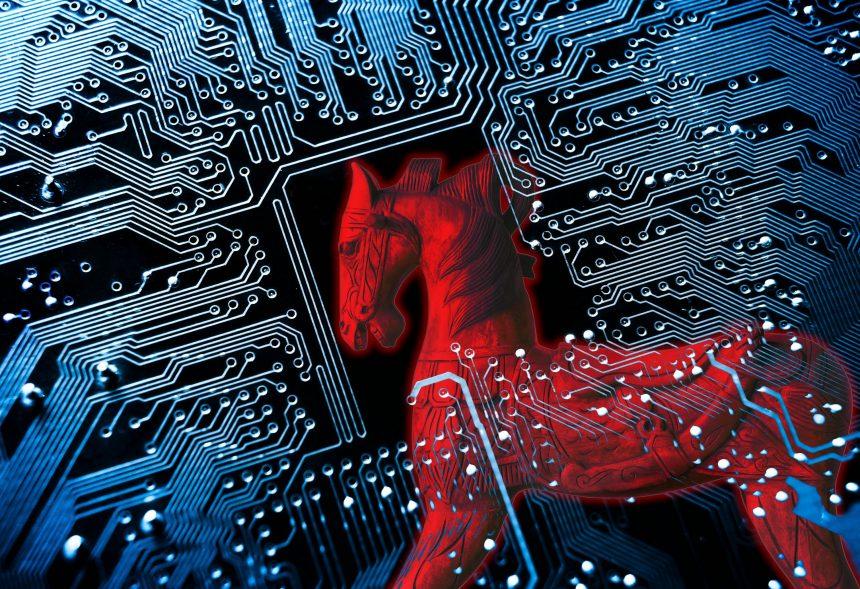Trojans, or Trojan horse malware, represent a category of malicious software designed to deceive users by masquerading as legitimate files or programs. Their primary purpose is to infiltrate systems stealthily, often attaching to downloadable files or spreading via malicious email attachments. Once installed, Trojans like Trojan.Win32.Raccoon.CCBMMTB pose a significant risk to both the infected system and the individual user, as they can enable unauthorized access, data theft, and other forms of cyber-attacks. Named after the ancient Greek myth of the wooden horse used to breach Troy, Trojans gain access to systems under false pretenses and then carry out malicious activities.
Remove annoying malware threats like this one in seconds!
Scan Your Computer for Free with Spyhunter
Download Spyhunter now, and scan your computer for this and other cybersecurity threats for free now!
What is Trojan.Win32.Raccoon.CCBMMTB?
Trojan.Win32.Raccoon.CCBMMTB, commonly referred to as the Raccoon Trojan, is a sophisticated trojan known for its stealthy infiltration methods and potent data-stealing capabilities. This malware typically installs itself on systems through malicious downloads, email attachments, or infected links on compromised websites. Once it gains access, it performs a variety of actions aimed at capturing and exfiltrating sensitive information. Specifically, Raccoon Trojan can steal login credentials, financial data, and other private information stored on the infected device, posing a severe threat to users’ security and privacy.
Installation and Actions of Raccoon Trojan
Raccoon Trojan leverages phishing techniques to infiltrate user systems, often hiding in legitimate-seeming applications or files. Once opened, the malware silently installs itself and begins collecting sensitive data from browsers, email clients, and cryptocurrency wallets. It may also use keylogging techniques to capture login credentials as users type. This data is then sent to remote servers controlled by cybercriminals, giving them access to critical personal information, including passwords and financial data.
The consequences of Raccoon Trojan’s presence on a system are significant. It compromises users’ security by allowing unauthorized access to their accounts and data, which can lead to identity theft, financial loss, and further infections as the collected data is often sold or used to deploy additional malware.
Symptoms of Raccoon Trojan Infection
Detecting the presence of Raccoon Trojan can be challenging as it operates covertly. However, certain symptoms may indicate its presence:
- Unusual system slowdowns or crashes.
- Unexplained pop-ups or advertisements.
- Unexpected data or account breaches.
- Increased network activity, especially unusual outbound connections.
- Decreased system performance when connected to the internet.
Detection Names for Raccoon Trojan
If you suspect an infection, check your system using one of these common detection names for Raccoon Trojan across various anti-virus programs:
- Win32/Trojan.Raccoon.CCBMMTB
- Trojan.Raccoon.Win32
- Trojan:Win32/Raccoon
- Win32:CCBMMTB-Trojan
- Win32.Raccoon.CCBMMTB
These detection names may vary across anti-virus platforms, so verifying with a reputable anti-malware tool is recommended.
Similar Trojan Threats
Raccoon Trojan isn’t the only threat in its category. Similar Trojans that pose a comparable risk include:
- Emotet: Known for data theft and botnet capabilities.
- TrickBot: Focuses on stealing financial and personal information.
- QakBot: Often used in banking fraud and ransomware attacks.
These threats can similarly infiltrate systems and compromise data integrity, necessitating thorough prevention and removal strategies.
How to Remove Raccoon Trojan: A Step-by-Step Guide
To eliminate the Raccoon Trojan from your system, follow these detailed steps:
Remove annoying malware threats like this one in seconds!
Scan Your Computer for Free with Spyhunter
Download Spyhunter now, and scan your computer for this and other cybersecurity threats for free now!
Step 1: Enter Safe Mode
- For Windows 10/11: Restart your computer and press the F8 key as it boots up.
- Choose Safe Mode with Networking from the options, which restricts unnecessary programs and prevents the Trojan from hiding.
Step 2: Delete Temporary Files
- Press Windows + R and type
temp, then press Enter. - Delete all files in the temporary folder, as Trojans may store executable files here.
Step 3: Use an Anti-Malware Tool (SpyHunter)
- Download and install SpyHunter, a trusted anti-malware tool.
- Launch SpyHunter and perform a full system scan. It will detect the Trojan and other potentially harmful files.
- After scanning, select Remove Selected to eliminate all detected threats.
Step 4: Check Installed Programs
- Go to Control Panel > Programs > Uninstall a program.
- Look for any unfamiliar or recently installed programs that could be connected to Raccoon Trojan.
- If found, right-click on the program and select Uninstall.
Step 5: Reset Browser Settings
- In your browser, go to Settings > Reset Settings.
- Select Restore settings to their original defaults to remove any malware extensions or altered settings.
Step 6: Clear Browser Cache and Cookies
- Access the Clear browsing data section in your browser’s settings.
- Select Cookies and other site data and Cached images and files.
- Choose All time and click Clear data to eliminate any residual traces of malware.
Prevention Tips to Protect Against Trojans
Protecting against Trojan infections requires a combination of cautious browsing and security measures:
- Avoid Suspicious Downloads: Download files and software only from trusted sources.
- Be Cautious with Email Attachments: Do not open attachments from unknown sources, as these often contain Trojans.
- Use a Reputable Anti-Malware Tool: Regularly scan your computer with SpyHunter or another reliable anti-malware program.
- Enable Firewalls and Security Updates: Regular updates and active firewall settings add layers of protection to your system.
- Strengthen Your Passwords: Use unique, complex passwords and avoid using the same password across different accounts.
Why Choose SpyHunter
SpyHunter is a powerful anti-malware tool with advanced detection algorithms designed to identify and remove Trojans like Raccoon Trojan. With SpyHunter, you can perform a free scan to detect any hidden threats on your system, ensuring a secure digital environment. Download SpyHunter now to safeguard your system from Raccoon Trojan and similar malware threats.




